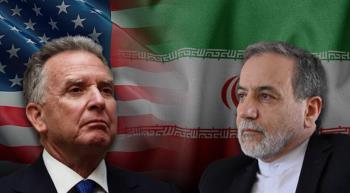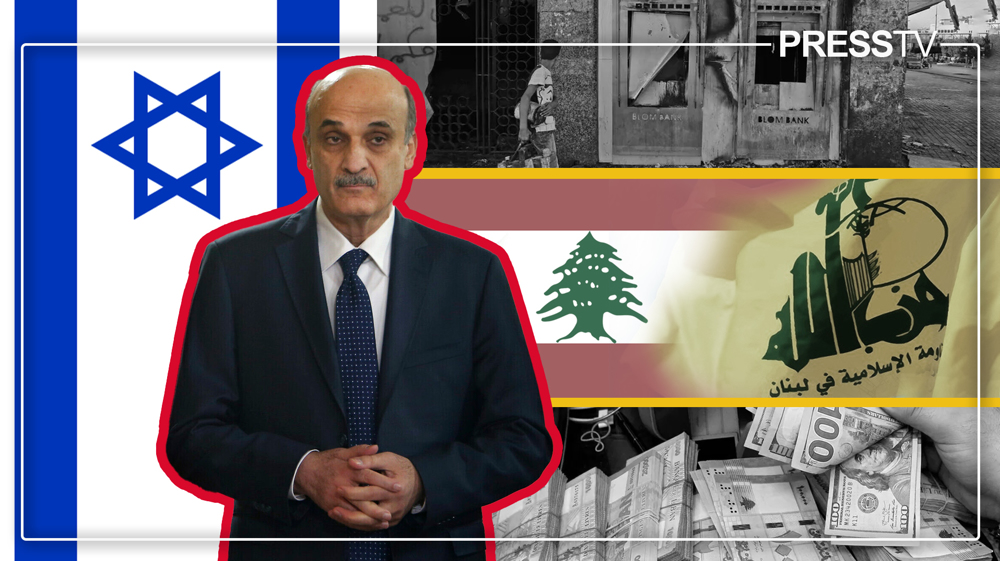At a time when Lebanon faces an economic crisis and threats from the Israeli regime, the right-wing Lebanese Forces party led by Samir Geagea is making desperate attempts to fan the flames of civil war in the country and provoke Lebanese resistance.
Despite repeated provocations, the Lebanese Hezbollah resistance movement has exercised utmost restraint and entrusted the task of maintaining peace and stability to the country’s authorities.
The recent armed clashes that took place in Lebanon’s largest Palestinian refugee camp, Ain al-Hilweh, located in the country’s south, came as a reminder of how fragile the nation’s security situation is.
The clashes, which erupted in late July and claimed at least 13 lives, presented a fresh challenge to the Lebanese army, as well as the Fatah party combatants, who fought Takfiri militants inside the camp.
The conversation in Lebanon, after the incident, steered toward disarming the Palestinian camps.
It gave rise to fears of a repeat of the 2007 Nahr al-Bared refugee camp conflict when the Lebanese Army fought against a number of Takfiri-Salafi groups, including Fatah al-Islam, that were based there.
The Nahr al-Bared clashes resulted in around 50 civilian deaths besides killing combatants on both sides.
What took place last month raised suspicions that foreign actors were working to stoke tensions in the camp and drag the Lebanese army into an open conflict with the Palestinian refugee population there.
In 2012, Lebanese Forces (LF) leader Samir Geagea called upon the army to enter the Ain al-Hilweh camp and there appeared to be support for action against the camp from LF supporters in Lebanon.
Al-Akhbar newspaper reported that Palestinian Authority Preventative Security chief, Majed al-Farraj, who visited Beirut a week prior to these clashes may have been involved in initiating the conflict.
To back this idea up, Lebanese journalist Jean Aziz, who works for al-Jadeed, said al-Farraj had requested that the Lebanese authorities beef up security, increase surveillance and start the process of disarming the Palestinian factions in Ain al-Hilweh camp.
He is known for being the kingpin of the Palestinian Authority’s security coordination with the Israeli regime and is close to both American and Israeli intelligence agencies.
In April, Israel accused Palestinian resistance movements, Islamic Jihad (PIJ) and Hamas, of being behind the largest rocket barrage fired from Lebanon at the Zionist regime since the 2006 Lebanon-Israel war.
Following this incident, it became apparent that the Israeli military was afraid of Hezbollah’s response – and eventually backed down from continuing violent incursions into the al-Aqsa mosque compound and struck a few banana trees in southern Lebanon to justify the claim that they had responded with force.
For Tel Aviv to launch any kind of attack on the Palestinian factions inside Lebanon, they risk the defensive retaliation of Hezbollah, as promised by its Secretary General, Seyyed Hassan Nasrallah.
The Hezbollah chief has made it clear that if the Israeli aggression results in any death in Lebanon - Palestinian or Lebanese - the resistance group will initiate a retaliatory attack.
Therefore, as experts opine, it serves the Israeli military’s nefarious agenda to exacerbate tensions inside the Palestinian refugee camps.
The camp is occupied by a myriad of Takfiri, Salafist and other assorted terrorist groups, who have links to the various al-Qaeda offshoots inside Syria’s Idlib province.
On top of this, there is the Fatah movement itself, which runs under the banner of the Palestinian Authority in Ramallah and is intricately linked to Israeli intelligence, a bond formed through the PA’s ongoing role as Israel’s security coordination partner in the occupied West Bank.
Samir Geagea, Israel’s man in Lebanon
Outside the sphere of potential security disturbance from within the Palestinian refugee camps are a myriad of Lebanese political figures and parties that align themselves with the West and the Zionist enemy and continuously threaten Lebanon’s internal security and stability.
The most prominent of them is the convicted murderer and fascist militia leader Samir Geagea, who heads the Lebanese Forces party and is a close ally of the Israeli regime and the West.
Geagea joined the fascist Christian militia force and political party known as Kataeb - or the Phalanges - in 1975 for which he was used by the party’s military chief, Bashir Gemayel, to carry out some of the most egregious war crimes of the bloody Lebanese civil war.
Despite Kataeb being renowned for its massacres perpetrated against Palestinian refugees - like the Sabra and Shatila camp massacre - and the ethnic cleansing of Muslims, along with the culling of competing maronite Christian forces, Geagea emerged as perhaps the most infamously brutal figure.
He later went on to lead the Lebanese forces in 1979. The Kataeb party - which modeled itself on European fascist movements like the Nazis - along with the lion's share of Christian right-wing militias, was trained by the Israelis and received active funding from the Zionist regime.
The Lebanese Forces was an Israeli surrogate militia, later becoming an established political party following the release of Geagea from prison in 2005.
Geagea was convicted of murder in 1994 and was handed four life sentences. He was supposed to be executed but managed to get away with a pardon following the Syrian withdrawal from Lebanon in 2005.
Being a convicted murderer, and notorious for his war crimes and fueling sectarian conflicts, Geagea maintains close contacts with the US government and is often hosted by leading American think tanks.
Wikileaks released cables, dated between 2007 and 2008, which revealed the extent to which Geagea played an advisory role to the US in Lebanon. The documents revealed how he advised Israel on carrying out evil activities in the country and also showed his dubious advocacy for anti-Hezbollah actions.
In October of 2021, the Lebanese Forces was blamed for the massacre of unarmed protesters belonging to the Amal movement and Hezbollah, in Tayouneh.
Lebanese Forces members were blamed for firing indiscriminately at protesters from rooftops. In this situation, Hezbollah could have retaliated against the LF but refrained from doing so.
Seyyed Nasrallah made it clear that the Lebanese authorities should deal with the situation and revealed that the resistance group has a standing military force of 100,000 men that are trained and combat-ready, not including allied militias and specialized units.
Last week, armed gunmen in the village of Kahaleh, near Beirut, opened fire upon Hezbollah members who were in a truck that overturned in a Christian-dominated locality.
A Hezbollah member was killed in the ensuing exchange of fire, as was a Christian villager.
Geagea blamed Hezbollah for the incident, in a provocative move, and even attempted to frame a death - claimed to be none related to political parties - that was claimed by the Lebanese authorities to be under investigation and likely the result of an accident. The incident took place in the Ain Ibl area.
According to Lebanese reports, his men were involved in the incident and responsible for the killings.
Under prevailing conditions inside Lebanon, with the nation's financial system teetering on the edge of collapsing and roughly 70 percent of the population falling below the poverty line, the potential for civil war once again remains alarmingly high.
Hezbollah is the strongest military and resistance force in the country, but it has repeatedly shown its intent to focus solely on protecting Lebanon and refrain from acting against the national interest.
If a civil war breaks out inside Lebanon, experts say, the finger of blame will automatically be on the Israeli regime and its Western backers who want to weaken the Hezbollah resistance movement.
As revealed in Wikileaks cables, Geagea had argued that the United States and the Israeli regime should focus on opposing the Syrian government for this very reason – the weakening of Hezbollah.
Source: Press TV



























